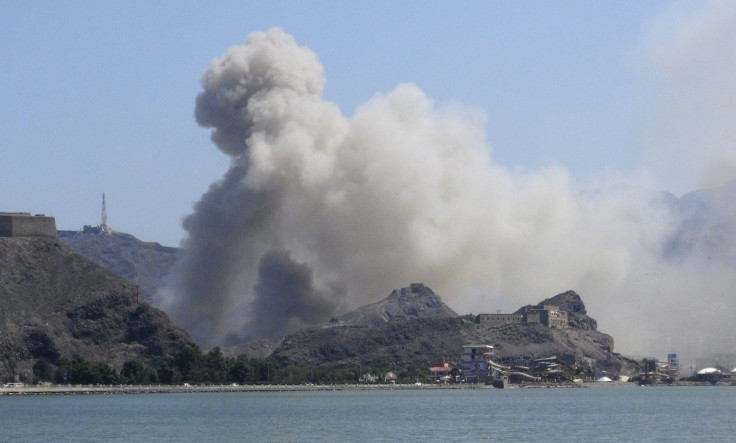Yemen: Why we need to care about the newest Middle East conflict

It is a sad fact about Middle East wars that as the death toll mounts the conflict drops off the agenda. It is not necessarily news outlets that are to blame, for various reasons people just stop reading: between Thursday and Saturday searches for Yemen on Google dropped by more than a third.
It doesn't help that the Yemen conflict – like the country – is incredibly complex, or that it is in a region increasingly associated with bloodshed and strife. The conflicts in Iraq and Afghanistan also fell from news bulletins as they rumbled on, and there is an argument to be made that Syria and Iraq today would have less attention had Islamic State not started beheading foreign hostages and posting the videos on the internet.
It doesn't help that the Yemen conflict – like the country – is incredibly complex
But the conflict against the Houthi rebels in Saudi Arabia and the open support of it by both Britain and the US is a big deal, and not only because of the civilian deaths that have followed Saudi Arabia and Jordan's bombing raids. As a coalition of Arab state talks seriously of a ground invasion in Yemen to unseat the Iranian-backed Houthis, we are looking at a sectarian proxy war between the region's two biggest rivals in one of its most unstable countries.
Saudi Arabia has a history of involvement in the wars of its neighbours, including Yemen, where it backed the monarchy in the 1960s as Egypt's president Gamal Abdel Nasser backed the republican forces and the south. Saudi won the day then, and has been meddling in Yemeni affairs ever since. After the 2011 revolution it was in Riyadh that Ali Abdullah Saleh agreed to stand down, and now Saudi is backing his replacement President Abdrabbuh Mansour Hadi.
As the veteran foreign correspondent Brian Whittaker wrote last week, Saudi policy on Yemen has traditionally sought to keep the country "on the wobble" – just unstable enough so that it is not a threat – by playing both sides off against each other. If that leads to the rise of extremist groups such as Al Qaeda in the Arabian Peninsula (AQAP) operating inside its borders then so be it, as long as they leave the kingdom to the north alone.
It could be argued that as one of only two coalition countries that shares a border with Yemen (the other being Oman) the Saudis would be expected to have an interest, but the coalition campaign that it has pulled together – which includes every Sunni state from Pakistan to Turkey to Morocco – has no noble purpose. This war will only lead to greater instability, more deaths and a stronger AQAP, with sectarian sentiments fuelled by what Shia Muslims will perceive as a battle for their survival and hard-line Sunnis will see as a holy crusade.
Even if the Saudi-backed forces can push the Houthis back from Aden and Sana'a and into their tribal areas in the north, Shia anger about a lack of security in Yemen will not go away. Houthis will be well aware of the dire situation of the sizeable Shia population in the eastern provinces of Saudi Arabia, where millions live in relative poverty and suffer discrimination, cut out of the kingdom's vast oil wealth and deprived of their religious and political rights.
As for the West, it will escape nobody in the Yemen that the US and Europe is tacitly supporting more bombs dropping on Arab cities. In wading in to give support for the Saudi-led coalition, the US and Britain have done themselves yet another disservice in the battle for hearts and minds in the Middle East. The fact that they have done so – as a cynic might argue – to counter the power of Iran in Middle East geopolitics will be seen as all the more deplorable.
In terms of an endgame, it is likely that this conflict will continue for some time. While the Arab coalition have committed to a ground force in principle, it will be very much a last resort. As IBTimes UK reported last week, the Saudis and Egyptians – both of which would contribute troops – will be aware of the failure of direct intervention, and a ground invasion would likely be a very bloody and costly affair. For their part, it is likely that war will be waged from the sky, with all the risk of civilian casualties that will entail.
And we have all seen what fills the vacuum caused by heavy bombing and destruction of Middle Eastern cities – just look at Syria and Iraq. Yemen already has a serious issue with extremism, one that will only be increased by a prolonged conflict. As the bombs rain down on Yemen, Al Qaeda, ISIS and their sympathisers will be rubbing their hands with glee.
© Copyright IBTimes 2025. All rights reserved.






















